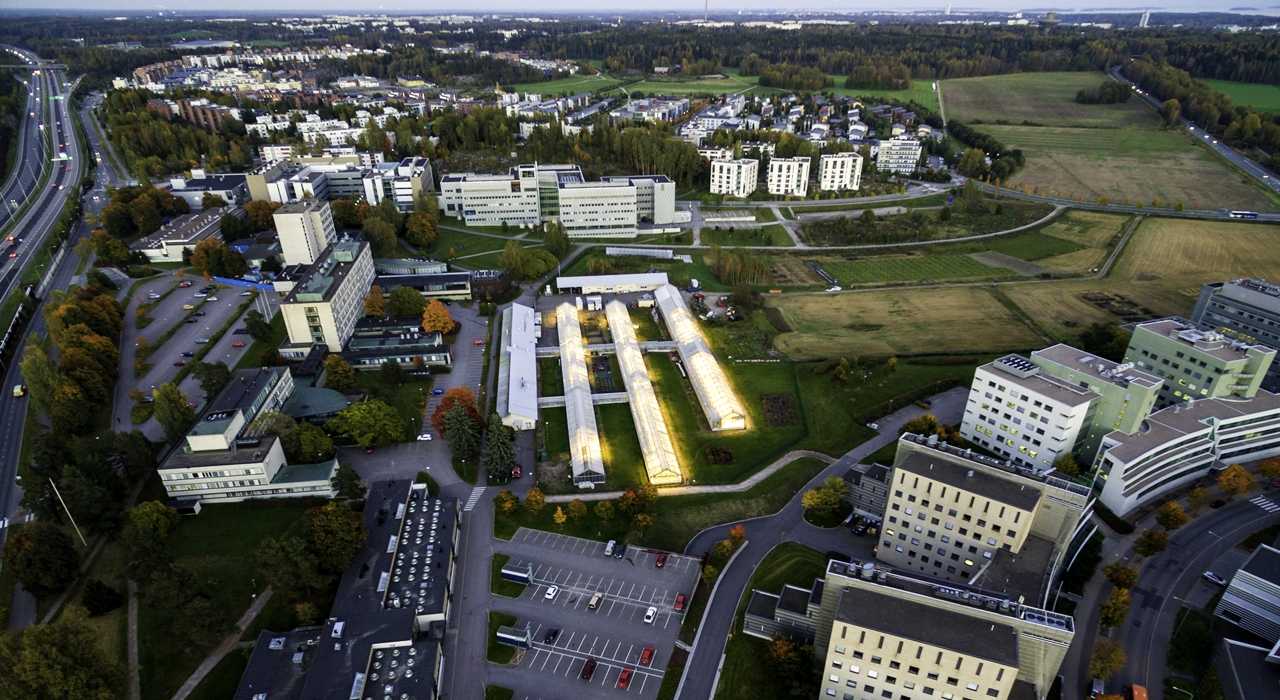For many of us who work in Viikki, there is a combined interest in advancing environmental sustainability goals through our research and pedagogic work and as individuals or members of communities. But how environmentally smart is the Viikki campus itself, including the practices of those who work and study there? There is a lot of advice out there how choices related to consumption or organizing of work can help to reduce the environmental footprint (e.g. carbon, water or non-renewable materials), but how do these translate to our everyday practices? Where could we do better in this regard?
This was a starting point for our C You in Viikki–initiative, established earlier this year as a joint effort of nine enthusiastic persons working and studying in the campus. To find out what our colleagues think, we sent out a short survey asking staff and students to share their environmentally smart practices on food, travel, waste and energy. We also asked them to make suggestions on potential new practices to reduce our environmental footprint at the campus, be they more or less easy to start implementing and scaling up.
Next, we would like to share some of the highlights from the responses. All together, we received ideas from 35 individuals and groups keen on working towards sustainability goals. The full report on the survey results is downloadable here.
In relation to FOOD, many suggested choosing vegetarian or vegan options during lunch and having them as the preferred catering option in meetings and seminars. In order to facilitate the choice, the vegetarian/vegan option could be listed first in the menu and placed so that it appears as the first option in the food lines. Those organizing events could also make the vegetarian choice as the “default” dietary choice.
Practices related to TRAVEL emphasized the use of public transport system and cycling. Among the common suggestions were reduced flying, avoiding indirect flights and adding safe places to store cycles in order to encourage cycling to Viikki. Many of the respondents were interested to know how travelling and participating in conferences could be done in an alternative manner, e.g. travelling to Central Europe by land. More support for such alternative means would probably be required from the CWG travel, the university’s official travel office. Video conferencing and remote participation were also seen as good alternatives to travelling by air.
Several good practices and some new ideas were identified related to WASTE. The respondents asked for proper recycling containers for various categories of waste not only in the coffee rooms, but also in other common spaces, such as labs, classrooms and hallways. Especially, recycling options for plastic as well as instructions on how to recycle plastics would be a good addition to the existing practices.
Survey respondents also wanted more information and easy to access, visible instructions regarding the best practices in reducing ENERGY consumption. Many suggested switching to renewable energy and adding more solar panels in the roofs or greenhouses’ tops. The first request related to renewable energy is already met: starting from this year all the electricity used in Viikki campus has been from renewable energy sources.
In addition to the practices and suggestions under these four categories, several other ideas how to improve our practices came up.
For instance, co-ordering products whenever feasible to reduce transport costs and emissions was suggested. Another good idea was to develop the procurement processes and criteria so that country of origin or environmental footprint could be set as criteria. The staff and students were also keen on adding green spaces in Viikki. Instead of cutting green spaces, grassy areas could be left as urban meadows that also serve insects and carbon reserves. Others suggested planting more trees and placing “insect hotels” and bird homes in suitable places in the campus.
So what’s next? We hope to turn the most promising ideas into action. However, this does not mean that we want everybody in Viikki to become vegan, stop flying and produce zero waste. Rather, we are interested in supporting ourselves and the work community to become better versions of ourselves in environmental matters, for instance by making the environmentally friendly choices easier and more visible. We also realize that some of the action and ideas will require external support from the faculties or the whole university. For instance, some of the new practices suggested would require changes in the infrastructure or administrative systems applied at the university, which will need some time and commitment from those who can make a difference. In the meantime, we can make a change by challenging ourselves to make environmentally smarter choices whenever possible.
Maria Ojanen and Heini Vihemäki
Maria Ojanen is a PhD student in the International Forest Policy Group at the Department of Forest Sciences. Her research focuses on evidence informed decision making, especially regarding how evidence is generated and how science and scientists influence policy making processes related to natural resource policies.
Heini Vihemäki works as a researcher in two projects exploring policy, consumer and business aspects of residential construction and housing, KäPy and Wood Vision 2025, at the Department of Forest Sciences. Heini’s research focus is on policy and actor dynamics influencing the growth of residential wood-based building solutions.
Photo from photo bank of the Faculty of Agriculture and Forestry, University of Helsinki.

